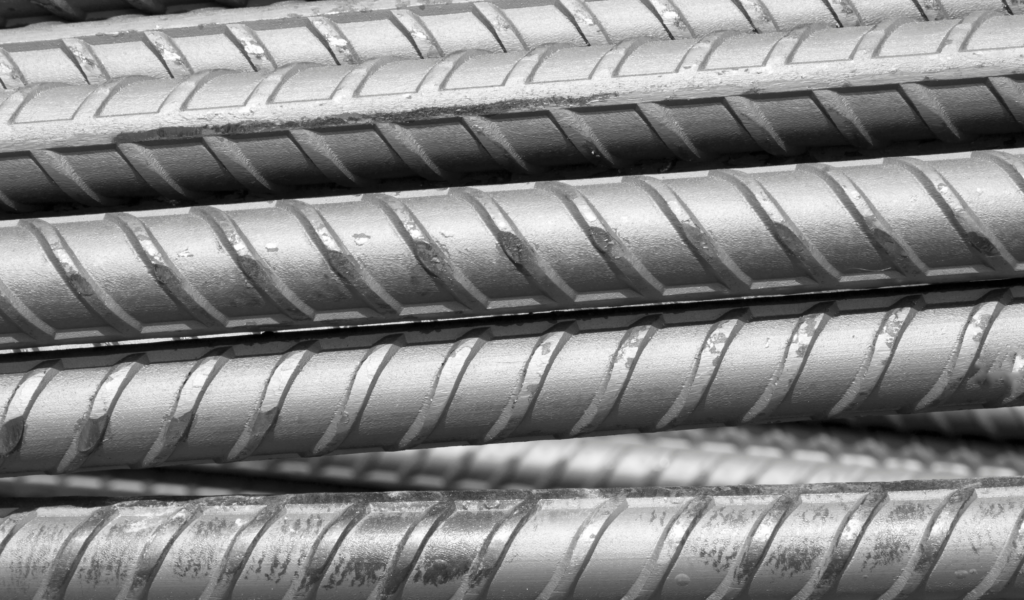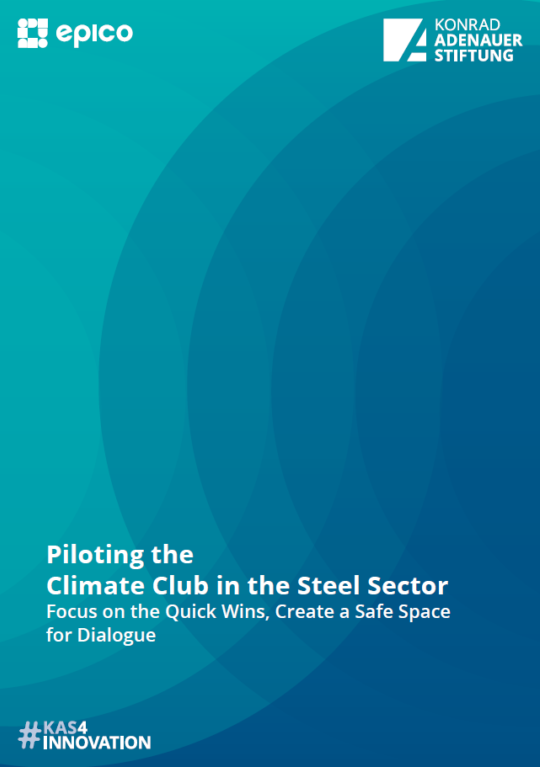EPICO KlimaInnovation and the Konrad Adenauer Stiftung published a policy brief on how the Climate Club can contribute to the decarbonisation of the steel sector, "Piloting the Climate Club in the Steel Sector: Focus on the Quick Wins, Create a Safe Space for Dialogue". Based on five key recommendations identified in the policy brief, the Climate Club can lead efforts for international cooperation to reduce the emissions of the steel sector.
The Climate Club was established at the G7 Summit in June 2022 and will be officially launched on the first of December at COP28 in Dubai. As an intergovernmental forum with a focus on industrial decarbonization, the Climate Club has the potential to fill a gap for international cooperation in the steel sector and raise the ambition for global emissions reduction. The steel sector, which accounts for 8% of total energy system emissions, is important for economies worldwide and will be critical for meeting a variety of socio-economic needs, such as the residential sector, and for building renewable energy infrastructure.
Piloting the activities of the Climate Club in the emission-intensive and trade-exposed steel sector has the potential to accelerate emission reduction in the sector, and further to provide the blueprint for other sectoral cooperation.
This publication provides guidance on the focus areas and activities of the Climate Club in the steel sector. With membership criteria based on nationally defined steel decarbonisation pledges and roadmaps, the Climate Club can create a vision for a near zero emission steel industry and facilitate greater institutionalisation for the goal of decarbonising the steel industry.
The policy brief makes the following recommendations:
- To successfully kick-start its activities, the Climate Club should avoid a narrow focus on carbon pricing and carbon leakage.
- Membership to the Climate Club for the steel sector should be based on national steel decarbonisation pledges linked to national roadmaps for the steel sector.
- The Climate Club should offer match-making for bilateral and plurilateral partnerships across the steel value chain with benefits for countries from the Global North and the Global South.
- The Climate Club should focus on "quick wins" in areas for cooperation with investment of relatively low political capital.
- Building on trust and goodwill established through partnerships, the Climate Club should provide a safe space for discussions on more contentious issues in the steel sector in the medium and long-term.


